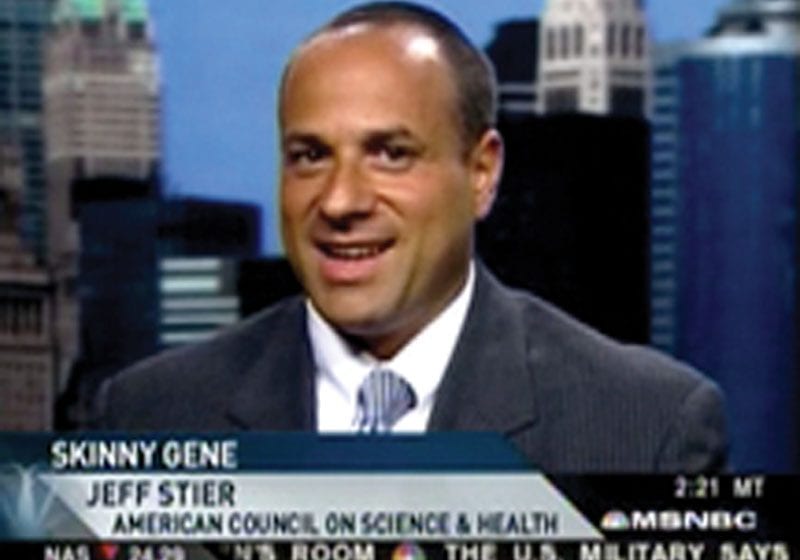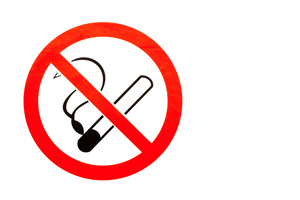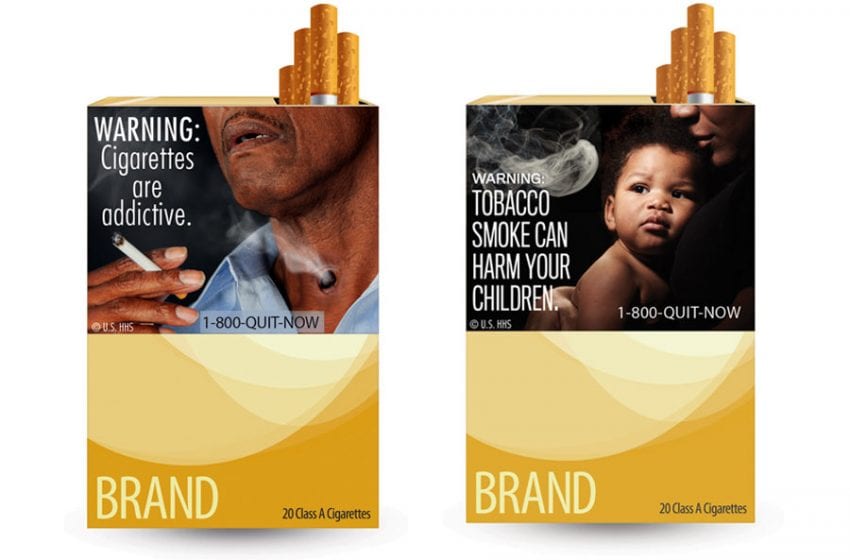The Vision for Alternative Development, the Ghana Non-Communicable Diseases Alliance and other civil society organizations have issued a petition calling on Ghana’s Food and Drugs Authority (FDA) immediately to ban the smoking of shisha in the country, according to a Ghana News Agency story.
The petition said that under the Public Health Act of 2012 (Act 851), specifically part six, (Tobacco Control Measures), shisha must be considered an illicit product that was causing negative health consequences for young people, who were the main targets of shisha.
‘Apart from the known diseases such as heart disease, cancer, respiratory disease and problems during pregnancy, smokers are at high risk of infectious diseases such as TB, Hepatitis, among other diseases,’ the petition said.
The World Health Organization was quoted as saying in a recent advisory note to regulators that smoking shisha posed grave health risks.
The WHO had said it was commonly believed that shisha reduced the risks of smoking because shisha smoke was passed through water.
But the WHO insisted that even after it had been passed through water, the smoke produced contained high levels of toxic compounds, including carbon monoxide, heavy metals and cancer-causing chemicals.
The petition said it was believed that the import of shisha products was illegal.
It said all tobacco products must be registered with the FDA before they were allowed entry into the country.
It said shisha products were being imported from neighboring countries through unapproved routes. Some of these products displayed no country of origin and it was not known what their constituents were.
Any product, including tobacco, that did not display its country of origin was illicit, therefore shisha was an illicit product and must be immediately banned, the petitioners said.
Category: Regulation

Another call for shisha ban

Warnings case to continue
India’s Supreme Court on Monday put on hold a lower court’s order that quashed federal rules mandating larger health warnings on tobacco packages, according to a Reuters story.
The Karnataka High Court last month struck down the Cigarette and other Tobacco Products (Packaging and Labelling) Amendment Rules, 2014, which had enlarged the warnings to 85 percent of the two principal faces of packages of cigarettes and other tobacco products. The rules had been in force since 2016.
The Supreme Court, which heard petitions brought forward by tobacco-control activists, stayed the Karnataka court’s order on Monday, citing the need to protect the health of citizens.
The case is due to be heard next on March 12.
The introduction in India of bigger tobacco-pack health warnings has seen a number of false starts and U-turns.
The government issued a notification on October 15, 2014, requiring the printing of graphic health warnings on tobacco packs covering 85 percent of each of the two main surfaces. But the policy was referred to a parliamentary committee that recommended in March 2016 that, instead, the warnings should be set at 50 percent.
The government, however, decided at the end of March 2016 to go ahead with its requirement for 85 percent warnings from April 1 of that year.
In response, ITC, India’s dominant cigarette manufacturer, announced on April 2 that it had halted production at its cigarette factories because it was not ready to print the bigger, graphic warnings on its cigarette packs. The company said that its factories would be shut till clarity emerged on the matter.
The country’s other manufacturers also halted production on April 1 and bidi manufacturers followed their lead sometime later.
ITC said on April 2 that because the question of the legality of the new warnings had been and continued to be pending before the courts, it had not committed to investing substantial resources in creating the large number of printing cylinders and other tools necessary for a change to the warnings. The implementation of health-warning changes was an elaborate process entailing months of preparation and involving substantial costs.
Stier joins consumer body
Jeff Stier, who has been a regular presenter and panelist at Tobacco Reporter’s Global Tobacco and Nicotine Forums, has joined the US’ Consumer Choice Center (CCC) as a Senior Fellow.
A CCC press note said that Stier would continue his work of two decades by being a voice for consumers who believe paternalists don’t have a monopoly on public health.
“The addition of Jeff Stier to the CCC team expands our efforts in the United States to speak up for consumer choice and be effective in our approach,” said CCC MD Fred Roeder.
“Mr. Stier’s vast experience and talent as a researcher, public health advocate, and commentator will no doubt help bolster CCC’s impact and reach as we go forward.
“We are elated to have him join the team.
The press note said that, through op-eds, media interviews, testimony at government hearings and insightful tweets, Stier would advance CCC’s mission as it related to issues including food policy, tobacco harm reduction, environmental health, consumer product regulation, and innovation.
“I joined the CCC because its mission and mine are one in the same: responsibly representing and empowering consumers who want both appropriate regulations and choice,” said Stier.
“Too often, laws and rules fail to strike the right balance, in part, because incentives to get it right are skewed in favor of recklessly-stringent regulation.
“Regulators are generally more sensitive to risks than they are to costs and unintended consequences. Regulators aren’t hearing enough about this from beleaguered consumers because attacks on consumer choice are so widespread that consumers can’t possibly speak out effectively in the appropriate forums each time their choices are under attack,” he said.
Stier has appeared on CNBC, CNN, Fox News Channel, MSNBC, as well as network newscasts. He is a frequent radio commentator, having been heard on NPR, top-rated major market shows in cities including Boston, Philadelphia, and Sacramento, plus syndicated regional broadcasts.
His op-eds have been published in top outlets including The Wall Street Journal, The Los Angeles Times, The New York Post, The Hill, The Washington Examiner, and National Review Online.
Stier has testified at FDA scientific meetings, met with White House officials, members of Congress and their staff about science policy, and has testified at state and local legislatures across the country.
Based in New York, Stier spent seven years as a Senior Fellow at the National Center for Public Policy Research in Washington, D.C.No time for e-cigarettes
The New Zealand government is being accused of dragging its feet over legalizing nicotine-containing vapor products, according to a story by Fergus Mason for vapingpost.com.
In March, the government announced that it planned to end a ban on nicotine liquids and embrace electronic cigarettes as part of its tobacco-free plans.
A consultation was launched in August but, in September, a new government was elected, and it seems less enthusiastic about vaping than was the previous government.
Meanwhile, the country is facing an epidemic of violent robberies at convenience stores as criminals target tobacco products, which have become hugely expensive following tax hikes.
In New Zealand, a pack of cigarettes sells for an amount equal to the value of its weight in silver, yet such packs are sold in small, vulnerable shops.
The situation has become such that the police have launched a special fund to help small businesses increase security.
Associate health minister Jenny Salesa is on record as saying that the government had not had time fully to consider e-cigarettes.
In defense of Guam law
The US Department of Defense (DoD) has voluntarily enacted a policy that aligns with a new Guam law that raises the minimum age to purchase, possess or use tobacco products and electronic cigarettes from 18 to 21, according to a story in The Guam Daily Post.
The DoD’s policy on tobacco use states that military stores, including those at Morale, Welfare and Recreation points of sale, located on Guam, will not sell or distribute tobacco products or electronic cigarettes to persons under 21 years of age.
“Tobacco cessation is a priority of the DoD, critical to the health, fitness, wellbeing, and readiness of DoD personnel,” said Navy Lt. Ian M. McConnaughey, public affairs officer for Joint Region Marianas Public Affairs.
BAT expects tax reduction
British American Tobacco has said it anticipates that, for the year to the end of December 2018, the changes brought about by the US Tax Cuts and Jobs Act would reduce the Group’s effective tax rate percentage to the high-twenties.
‘All other things being equal, this would result in a benefit of six percent to full year 2018 earnings per share, supporting our commitment to high single digit earnings growth and increased investment in the roll out of Next Generation Products,’ the company said in a note posted on its website today.
BAT said it noted that approval had been given for the new Act and said that it was continuing to work through the full impact it would have on the company. It said it would provide in February more details about that impact as part of its preliminary announcement for the year ended 31 December 2017.
‘For the year to 31 December 2017 the announced changes will have no impact on the Group’s underlying effective tax rate, which we have previously said we expect to be around 30 percent, BAT said. ‘However, we anticipate that the changes will result in a non-cash exceptional tax credit as a result of the revaluation of deferred tax balances arising from the acquisition of Reynolds American Inc. (RAI).’
Students focus on shisha
Preliminary results from a study being undertaken in Kenya has shown that 60.0 percent of urban secondary-school students have smoked shisha, according to a story in The Star.
The results show, too, that 12.6 percent of high-school students are regular shisha smokers. In universities, the proportion of active users rises to 20.0 percent.
The study, which has been endorsed by the Ministry of Health, is being carried out by a team of doctors from Mombasa, Nairobi, Kisumu and Nanyuki, in the towns of Nairobi, Mombasa, Kisumu, Kilifi, Meru and Nanyuki. It was started in June and is due to be completed next month.
What effect the study results will have is unclear because Kenya banned shisha smoking and related activities just before the end of last year.
According to a story in The Nation, the ban emanated from the Ministry of Health and was the subject of a gazette notice that said: ‘No person shall import, manufacture, sell, offer for sale, use, advertise, promote, facilitate or encourage shisha smoking in Kenya’.
The Star reported that research by the World Health Organization and the US Centers for Disease Control and Prevention had shown that shisha ‘could be more dangerous than cigarettes’. WHO said a one-hour shisha session was equivalent to smoking about 100-200 cigarettes.
“Smokers therefore expose themselves to larger amounts of dangerous chemicals that can cause cancer, heart diseases, respiratory diseases and trigger adverse effects during pregnancy,” WHO said in its report, Waterpipe Tobacco Smoking: Health Effects, Research Needs and Recommended Action by Regulators.
Ban seen as discriminatory
A proposed smoking and vaping ban on restaurant patios in Winnipeg, Canada, is being called discriminatory by some local smokers, according to a story by Maggie Macintosh for the Winnipeg Free Press.
Winnipeg is the last major Canadian municipality where people can smoke while enjoying a meal or patio beer, but that may not be the case by the spring.
Winnipeg’s community services department has recommended a ban on the use of cigarettes, cigars, pipes, electronic cigarettes, water pipes, hookahs and ‘similar products/devices’ on outdoor patios where food or drinks are served.
If the City Council approves the ban it will go into force on April 1.
One smoker interviewed described the proposed ban as offensive. The fact that she was a smoker didn’t make her any less of a restaurant customer.
But councillor Mike Pagtakhan, who doubles as the chairman of the standing policy committee that moved the motion to introduce the ban, said 76 percent of Winnipeggers surveyed, which was “an accurate cross-section” of the city, supported a ban on outdoor patio smoking.
About 21 percent of men and 12 percent of women smoke in Manitoba, according to 2014 Statistics Canada data.
Some of those interviewed believed that the issue could be addressed by having separate patio areas for smokers and non-smokers.
And others thought that decisions about patio bans should be left to the business owners.
But Pagtakhan said that since Winnipeg was the last major city in Canada to ban smoking on patios, it was “about time” to do so.
Warnings of little concern
Cigarette manufacturers in South Korea have said they are not ‘not too worried’ about the possibility that the government will increase the size of graphic health warnings on cigarettes, according to a story in The Korea Times.
South Korea is due to change the graphic images on cigarette packs on December 23.
According to a Yonhap News Agency story from last week, a committee, comprising eight civilian experts and four government officials, met in South Korea on January 4 to consider ideas for new graphic health warnings on cigarette packs, and discussed also whether ‘stronger pictorial warnings’ should be imposed on heat-not-burn products.
In 2016, tobacco companies were required to include graphic warnings covering 30 percent of the upper part of both of the main faces of cigarette packs.
Under the requirement, the 10 graphic images used must be changed every 24 months as part of efforts to maintain their effectiveness, the Ministry of Health and Welfare says.
“When the government introduced the graphic health warning policy a couple of years ago, we were concerned it would reduce demand for cigarettes,” Kwak Sang-hee, a senior PR official at British American Tobacco (BAT) North Asia said in a statement reported by the Times. “But the policy turned out to have little impact on our sales. I think this time it won’t be much different.
“But we do not know for sure at this point. It may affect the demand, depending on how big the warnings will be and how they will look.”
A PR official at KT&G, the largest tobacco maker in South Korea, said the company didn’t expect a big drop in sales, citing examples in which similar policies in other countries had barely affected demand for cigarettes.
A recent survey by the Korea Health Promotion Institute suggests three-quarters of people think the graphic warnings should be larger than they are at present.
But some experts say the effects of graphic warnings are limited; and they think the government should use its tax policy if it is serious about reducing smoking rates.
But policymakers know tax policies carry political risks.
No more mister nice guy
Tobacco smoking is prohibited in more than 32,000 premises and locations in Singapore, including shopping malls, offices, hospitals, schools, parks, bus stops and common areas of residential buildings, according to a story in the Straits Times.
Singapore’s already extensive smoking bans were added to on October 1 after which smoking was prohibited within five meters of public places, such as the outdoor areas of universities and the compounds of private institutions, with the exception of designated smoking areas.
The new rules banned smoking within a five-meter radius of kindergartens, childcare centres, primary and secondary schools, junior colleges, polytechnics and the campuses of institutes of technical education.
They banned from smoking private-hire car drivers and passengers, and passengers in trishaws and excursion buses.
It was already illegal for trishaw riders and excursion bus drivers to smoke while working.
The Times said that verbal warnings had been given to 772 smokers who lit up near schools and other areas prohibited under the new regulations, but that the crackdown was getting tougher.
The National Environment Agency was said to have taken an advisory approach in the first three months after the new law came into force to allow smokers time to make the transition to the stricter regime.
But that softly-softly approach changed on January 1. People caught smoking in a place where smoking is prohibited now face having to pay penalties.








